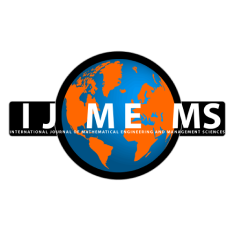Tadashi Dohi
Hiroshima University, Japan.
Hiroyuki Okamura
Hiroshima University, Japan.
DOI https://dx.doi.org/10.33889/IJMEMS.2018.3.2-006
Abstract
Reliability is one of the most fundamental attributes in quality metrics, and receives considerable attentions in all engineering and computer science fields. Also, maintenance is the most useful solution for the proactive reliability management. Since modern systems in mechatronics, electronic and electrical engineering, computer science, chemical plant and process engineering, structural engineering, etc. are large scaled and much complex, efforts to assess the system reliability with maintenance are increasing as well. In fact, we often encounter mathematical modeling issues in quantitative assessment of reliability and maintenance of complex systems. The Special Interest Group on Reliability (SIGR) in Operations Research Society of Japan has continued working in Reliability and Maintenance research in Japan since 2014, and experienced to organize 18 technical seminars including 2 international symposiums and 1 special session in an international conference. We proud to have organized high quality events on reliability and maintenance modeling for the past three years and presented the latest research results in this emerging field. Based on our research activity in SIGR, we were honored to have a Special Issue on Mathematical Modeling in Reliability and Maintenance of Japan, in International Journal of Mathematical, Engineering and Management Sciences (IJMEMS). Not only the members of SIGR but also the general authors in reliability and maintenance modeling field were invited to submit their papers. Up to the paper submission deadline on March 31, 2017, we received 8 submissions from Japan and China. Each paper was strictly reviewed by two referees. Based on a few rounds of revisions, we could accept all the papers in this special issue. We thank all the referees and authors for their patient efforts to improve the papers. The paper on “A Summary of Periodic Replacement Policies with Number of Failures”, by Xufeng Zhao, Cunhua Qian, Syouji Nakamura and Toshio Nakagawa, is an excellent survey paper on periodic replacement policies, which can be categorized into block replacement. The second paper, “Note on History of Age Replacement Policies”, by Toshio Nakagawa, Mingchih Chen and Xufeng Zhao, focuses on a historical survey on another category called age replacement. Satoshi Mizutani and Toshio Nakagawa summarize “Maintenance Overtime Policy with Cumulative Damage”, which is often used in heavy industry. The above three papers would be useful for readers of this journal to understand the fundamental maintenance modeling approaches. The fourth paper on “Parametric Bootstrap Methods for Estimating Model Parameters of Non-homogeneous Gamma Process”, by Yasuhiro Saito and Tadashi Dohi, deals with statistical interval estimation procedure with bootstrap techniques under the incomplete knowledge on failure time distribution. Since the gamma process is a generalization of an nonhomogeneous Poisson process to describe minimal repair processes, the resulting statistical techniques and validation results through a simulation experiment will be useful in practice. The fifth paper “Fast Calculation Methods for Reliability of Connected-(r,s)-out-of-(m,n):F Lattice System in Special Cases”, by Taishin Nakamura, Hisashi Yamamoto and Xiao Xiao, is a challenge to compute the quantitative reliability in complex structured systems, where some specific cases are highlighted. The last three papers concern the reliability and quality issues in computer science. The paper on “Reliability Importance of Components in a Real-Time Computing System with Standby Redundancy Schemes”, by Junjun Zheng, Hiroyuki Okamura and Tadashi Dohi, treats a real-time computing system, and conducts the reliability importance analysis to investigate the impact of components. Masanari Kondo, Osamu Mizuno and Eun-Hye Choi report “Causal-Effect Analysis using Bayesian LiNGAM Comparing with Correlation Analysis in Function Point Metrics and Effort”. This is an important issue in empirical software engineering. Throughout the real project data analysis the authors succeed to improve the common causal-effect analysis. Momotaz Begum and Tadashi Dohi consider “Optimal Release Time Estimation of Software System using Box-Cox Transformation and Neural Network”, where the classical neural network approach is improved by introducing the Box-Cox data transformation. Finally, the guest editors would like to appreciate Dr. Mangey Ram, Professor of Graphic Era University, India, and Editor-in-Chief of IJMEMS. This special issue will not be published without his kind invitation and encouragement. We hope this special issue leads to further research and development in reliability and maintenance engineering.
Keywords- NA
Citation
Dohi, T., & Okamura, H. (2018). Preface. International Journal of Mathematical, Engineering and Management Sciences, 3(2), 62-63. https://dx.doi.org/10.33889/IJMEMS.2018.3.2-006.



